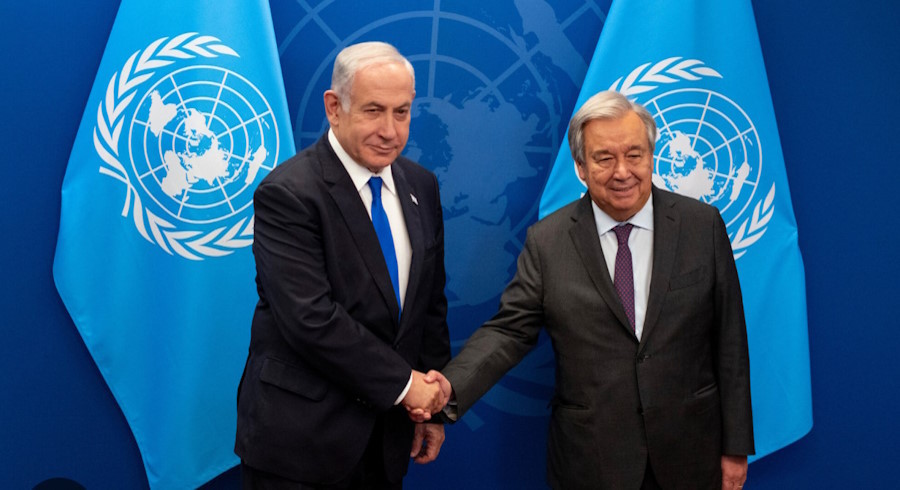TEL AVIV, 27.10.2023 by EZRA HAMDAH NEWS CORRESPONENT
UN Secretary General António Guterres spoke on Wednesday, hours after Israel said it would stop issuing visas to UN personnel to “teach them a lesson” over Guterres’s initial comments, which were made during a meeting on Tuesday. Officials working for the U.N. who had staff position and offices in Israel are now visa refused , and The diplomatic tensions between Israel and the United Nations are escalating as the dispute unfolds, and it remains to bee seen how it will impact their relationship in the long term. United Nations employees across the world are supposed to have automatic access to visas to carry out their work.
Senior UN officials were unable to obtain Israeli visas, after the country decided not to issue visas for the agency’s officials, after the UN Secretary-General angered them. So far they have rejected visas for Deputy Secretary General of Humanitarian Affairs Martin Griffiths, and some of the known officials from East asia include Dechen Tsering Regional Director and Representative, Regional Office for Asia and the Pacific, Office of the Coordination of Humanitarian Affairs, Charles Bernimolin, Trevor Lewis Advisor and Head, Unit for Nonsovereign Operations, Mr. Christopher King Chief, Weapons of Mass Destruction Branch Office for Disarmament Affairs, Keisuke Sadamori Director, Energy Markets and Security, Praveen kumar Chief FIU East Asia, Ann Maymann UNHCR Representative, Barlev Nico Marhehe UNEP Programme Management Officer, Oyunsaikhan Dendevnorov. UNICEF Representative and many more coordinating the humanitarian and official works.
Secretary-General Antonio Guterres has said that “any such ban would be unacceptable and frankly, inconceivable.“We’re still looking into how this development would affect our operations in the country, and we are expected to have more meetings with the de facto authorities tomorrow in which we’re trying to seek some clarity.”
Secretary-General Antonio Guterres has said that “any such ban would be unacceptable and frankly, inconceivable.”
“We’re still looking into how this development would affect our operations in the country, and we are expected to have more meetings with the de facto authorities tomorrow in Kabul in which we’re trying to seek some clarity.”
Dujarric said female staff members are essential to executing life-saving U.N. operations on the ground, saying that out of a population of about 40 million people, “we’re trying to reach 23 million men, women and children with humanitarian aid.”
The U.N. has about 3,900 staff in Afghanistan, approximately 3,300 Afghans and 600 international personnel, he said, including 600 Afghan women and 200 women from other countries.
Dujarric wouldn’t speculate when asked if the U.N. can continue to operate in Afghanistan if the Taliban don’t reverse the ban on Afghan women.
The U.N. contingency plan “is almost too tragic to contemplate,” he added later.
The U.N. political mission in Afghanistan, UNAMA, is headed by a woman, Roza Otunbayeva, a former president and foreign minister of the Kyrgyz Republic. She was appointed by the secretary-general in coordination with the U.N. Security Council. Dujarric said there’s been no Taliban action regarding the U.N.’s senior leadership.
Taliban restrictions in Afghanistan, especially the bans on education and NGO work, have drawn fierce international condemnation. But the Taliban have shown no signs of backing down, claiming the bans are temporary suspensions in place allegedly because women were not wearing the Islamic headscarf, or hijab, correctly and because gender segregation rules were not being followed.
___
Associated Press writer Edith M. Lederer at the United Nations contributed to this report.


